Lyra was one of these babies that liked to be carried around all the time. I soon learnt to do most things one handed, because I’d be carrying her in my other hand: from pegging up the washing to putting in my contact lenses. Combine that with rocking her to sleep and carrying around a ridiculously heavy car seat, and by the time she was ten months old my lower back was in a BAD way.
After visits to the doctor and a course of physio my back was still no better and I was starting to get desperate … I was seriously worried that it was never going to feel the same again. My auntie, who’s a nurse, suggested that I paid privately to see an osteopath. I was skeptical but did some research and read some reviews and decided to give it a go. I went to see Emma from Feel Better Osteopathy, and after a couple of sessions of being prodded, poked, stretched and twisted (uncomfortable but not painful), my back pain gradually started to ease.
In my mind, Emma was a miracle worker. So when I started to feel the same niggly pains, several months after giving birth to Jenson, I booked myself in to see Emma straight away. This time round I only needed one session and my back is right as rain once more.
As I’m sure there are a lot of mums that are suffering from the exact same issue I thought I’d ask Emma for her words of wisdom. Over to Emma …
Back pain is sadly a painful reality for many new mums. Having just gone through the physical challenges of pregnancy, labour and sometimes C-section, women have already been been challenged, both physically and emotionally before their little one even arrives.
Enter said little one, with their around the clock needs, heavy car-seat and extra luggage to cart around. Add in a lack of sleep, no time to exercise. Is it any wonder that so many new mums suffer from back pain?
However, with a little bit of self-care and effort, you can minimise or even prevent back pain altogether by following these simple tips:
1. Baby Carrying
Use a sling that holds your baby centrally and symmetrically across your front. Look for one with padded shoulder straps and a hip belt which helps distribute the weight evenly. When you don’t have a sling, alternate your carrying side to avoid strain patterns developing. Take a break from carrying and let others take the load whenever they are around to help. As your little one gets bigger, encourage them to move themselves as much as possible.
2. Feeding
Sit in a supportive chair and use pillows to help your posture. A small pillow behind your lower back will help maintain its natural curve, and a cushion under the arm supporting your baby’s head will prevent strain in your your arm and upper back. If you are breast-feeding use pillows to position your baby in an optimal feeding position, rather than trying to move your breast towards your baby.
3. Nappy Changing
Use a nappy-changing table or place the changing mat on top of a chest of drawers. Of course, you may need to adapt your set up when your baby shows signs of starting to roll! If you always change your baby’s nappy on the floor, your back will not thank you – or your knees for that matter.
4. Lifting
Try to lift heavy items (eg car-seat with baby in it) by bending and straightening your knees, rather than bending forwards from your back with straight legs. Even better, if you have a companion with you, delegate.
5. Exercise
This is probably the most important tip, but may feel the most difficult to find time for. Walking, swimming, gentle pilates and post-natal yoga are all excellent forms of exercise for new mums. Movement is so important for a healthy back. If you can’t make a regular class, consider getting a DVD, subscribing to an online course, youtube videos or just do a simple 10 min exercise routine at home. Exercise that gently strengthens the abdominal and core muscles and mobilise the spine are ideal.
6. Sleep
Your body needs sleep and rest to rejuvenate and heal. Unfortunately, this is often easier said than done with a new baby. Here are some suggestions that might help: getting your other half to do a night feed; napping in the day if/when your baby naps; temporarily sleeping in separate beds so you and your partner don’t wake each other if one gets up earlier; going to bed early.
7. Delegate
Don’t be afraid to ask for help or accept help if it is offered. Many new mums feel they should be managing everything perfectly by themselves. This is an impossible feat and will probably end up breaking you physically and mentally.
8. Cot
If you have a cot that has adjustable heights, use the highest level until your baby can pull themselves up. Some cots have a side that you can slide up and down which can be useful to prevent straining your back.
9. Medication
Current guidelines state that paracetemol and ibuprofen are safe to take when breast-feeding. Recent evidence suggests however that paracetemol has little effect on back pain, so ibuprofen may be a better bet. Always take ibuprofen with food to protect your stomach. Your GP may be able to advise on other pain medications that are safe to take if you are breast-feeding.
10. Get Professional Help
If these tips don’t resolve your back pain, seek help from a back pain specialist such as an osteopath. An osteopath will assess what is causing your pain and either use gentle hands-on techniques to relieve muscle and joint tension or refer on for further tests if necessary. Osteopaths will also advise on specific exercises and lifestyle adaptations to do at home.
Emma Lipson is Principal Osteopath at Feel Better Osteopathy, part-time health blogger and mum to two wonderful girls, Marnie and Isla. She enjoys treating all family members, including babies and pregnant ladies from her home-based clinic in Warwick, Warwickshire. Her special interest lies in resolving and preventing lower back pain.
Image by Little Beanies


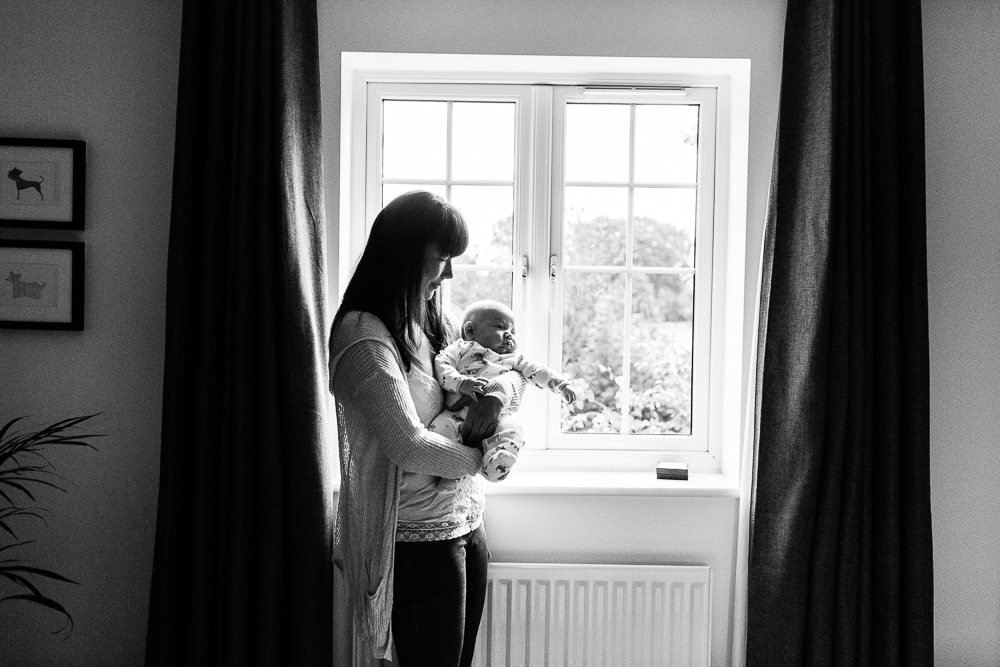

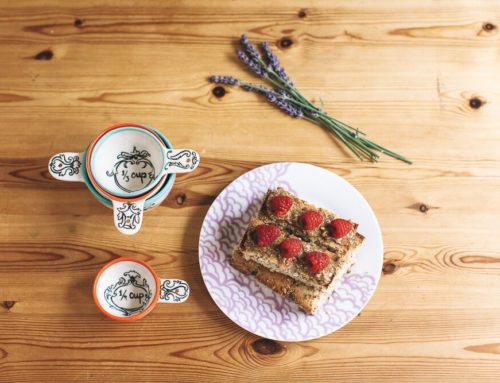
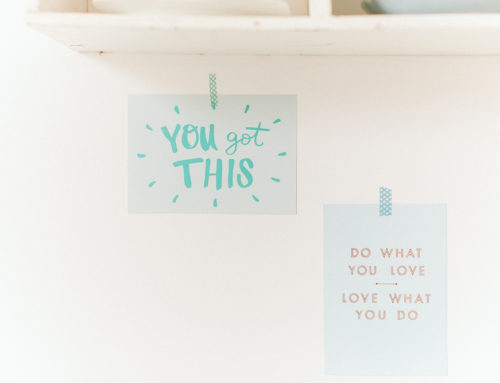
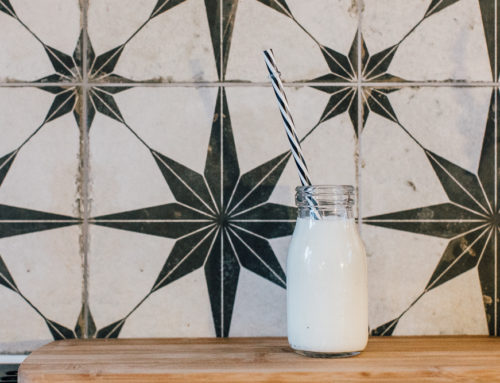
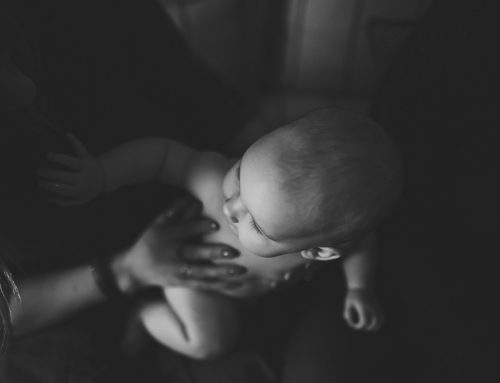
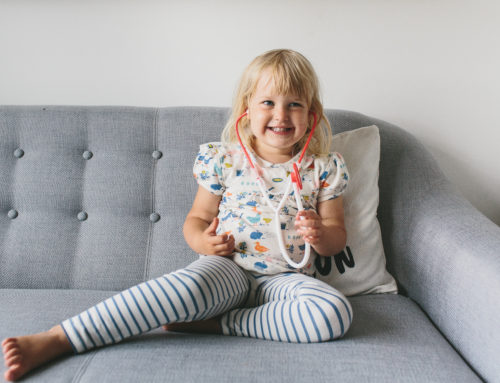
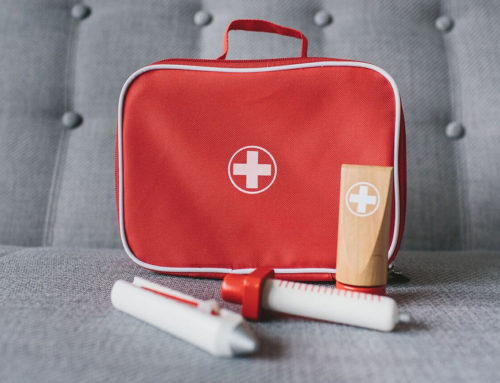



Great timing with this post thank you. I am recovering from an emergency c section with a heavy baby and feel I have no tummy muscles left so all the strain is going on my back. I was starting to worry about long term effects but will definitely take these tips on board thank you! Xx
Congratulations Sarah and glad to be of use. Hope you manage to get a bit of rest over Christmas (take note of numbers six and seven above!) x
Leave the car seat in the car and just take the baby! Much lighter!
YES to this Clare! I finally figured out that I should be doing this a bit too late! x
I do this and it’s made such a difference!
I have a bad back anyway (had spinal surgery as a child) but two pregnancies in two years has killed my back. I’m waiting for my physio appointment but I may try osteopathy. I find that doing some simple stretches in a hot shower in the morning help as I’m particularly stiff when I wake up and the heat relaxes muscles. Likewise a nice hot bath helps, now just to find time to have a bath regularly!
Some more brill tips…thanks Anna. Hope you manage to get your back as sorted as it can be. I can’t recommend osteopathy highly enough x
Really good post and very relevant! Thanks RMF and Emma!
Thanks for all your comments and I’m glad you found these tips useful.
[…] I was delighted to have been asked to guest-blog for Rock My Family parenting website. You can read my blog post here: ‘Ten Tips for New Mums Suffering From Back Pain’ […]